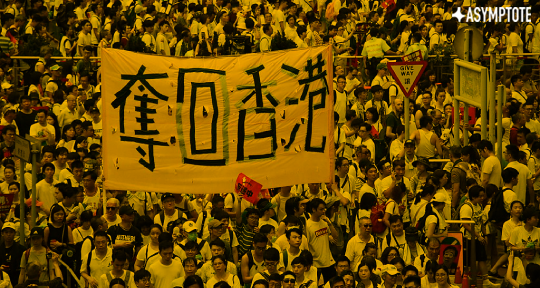On June 9, 2019, more than 1 million people took to the streets to protest an extradition bill proposed by the Hong Kong government. If passed, the bill would make it legal for Hong Kong citizens to be extradited to Mainland China and tried under Chinese law—a legal system that not only threatens Hong Kong’s rule of law, but is also known for repeated human rights violations. Given China’s steady encroachment on Hong Kong since 1997, the “one country, two systems” policy that guarantees Hong Kong’s autonomy until 2047 is undeniably in jeopardy. The city’s concern over its future continually manifests in its local discourse, protests, and literature.
Although I grew up in Hong Kong, my interest in translating Hong Kong literature blossomed in Chicago, where I was studying English. Reading the work of Hong Kong writers allowed me to see my home city in a new light. One of the first Hong Kong poets I came across was Chung Kwok-keung, who writes about Hong Kong people, places, and politics with an attentive and empathetic gaze. In December 2014, he wrote a suite of poems (two of which were translated by Emily Jones and Sophie Smith for Asymptote) titled “Occupy Stories” about the Umbrella Movement—previously the biggest protests in Hong Kong in recent years. Now, with protests taking place again in the city, Chung is writing with an eye towards how the anti-extradition movement has shaped society.






